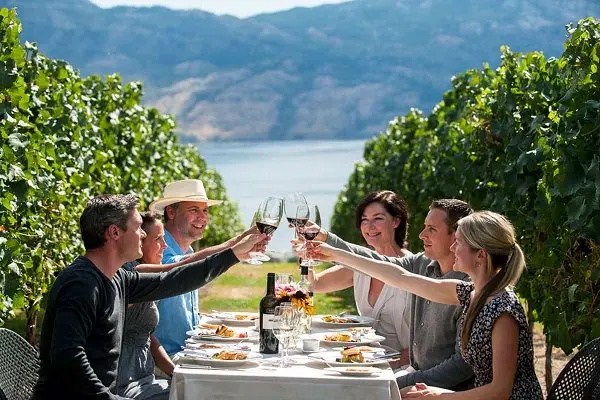When most people think of wine, their minds drift to the old-world elegance of French Bordeaux, the robust Chianti of Tuscany, or the fruity richness of Spain’s Bobal. For years, the US was perceived as an outsider in this world, more associated with bourbon than a refined glass of wine. However, this perception is rapidly changing as the American wine industry experiences a remarkable renaissance, driven by a spirit of innovation, freedom, and a growing appreciation for the diverse terroirs across the country.
California has long been the heart of American winemaking, and its vineyards have become iconic destinations for wine lovers worldwide. The state’s wine tourism is booming, with millions flocking to its scenic landscapes and tasting rooms each year. Napa Valley, in particular, has become synonymous with American wine excellence. The first Napa Valley Wine Auction in 1981, where a 1969 Chappellet Cabernet Sauvignon fetched $6,000, marked the beginning of the region’s rise to global fame. Today, Napa Valley alone draws approximately 3.85 million visitors annually, cementing its status as a must-visit destination for wine enthusiasts.
While California continues to dominate, Washington has emerged as a powerful contender in the American wine scene. Since the early 1980s, Washington’s wine industry has exploded from just 19 wineries to over 1,050, averaging 50 new wineries each year in the past decade. The state’s unique terroir, located at a favorable latitude between Burgundy and Bordeaux, allows for the production of a wide variety of grape varietals. The Yakima Valley, named the top wine region in the US, showcases the diversity and quality that Washington has to offer.
One of Washington’s hidden gems is the Ellensburg Canyon Winery, the first commercial vineyard in Kittitas County. Founded in 1998, the winery takes advantage of the region’s unique climate and soil composition to produce award-winning wines that defy the stereotypes of American wine. For instance, their 2022 Cliff Crest Riesling has garnered accolades from the Washington State Wine Competition and the Texas International Wine Competition, proving that American wines can compete on the world stage.
What sets American wines apart is the country’s inherent spirit of innovation and freedom. Unlike the traditional methods employed in Europe, American winemakers are not afraid to experiment with new techniques and ideas. Jason Reigel, who took over Ellensburg Canyon Winery in 2021, embodies this spirit of innovation. Reigel is passionate about pushing the boundaries of winemaking, whether it’s through experimenting with grape varietals, trying new aging processes, or reimagining the branding of his wines.
Reigel’s innovative spirit is driving a bold rebranding effort, transforming Ellensburg Canyon Winery into Tartarian Wine. This new brand, symbolized by the mythical Griffin, aims to capture the imagination of wine lovers worldwide. The rebranding taps into the growing fascination with American wines and seeks to establish a global presence, bringing the unique flavors of Washington to the international stage.
As Reigel looks to the future, he envisions a world where American wines are celebrated for their creativity, complexity, and the emotions they evoke. Tartarian Wine will make its international debut at the China Wine Show in Shanghai, introducing three new wines alongside a canned wine product aimed at golf courses and pubs. This expansion into new markets is a testament to the growing influence of American wines and their ability to resonate with a global audience.
The rise of US wine tourism is a reflection of the country’s dynamic and innovative approach to winemaking. From the rolling vineyards of California to the emerging regions of Washington, American wines are gaining recognition and respect on the world stage. The story of Ellensburg Canyon Winery, soon to be Tartarian Wine, exemplifies the power of passion, innovation, and a commitment to quality. As Jason Reigel aptly puts it, “The essence of novelty, liberty, and innovation is encapsulated in every single bottle of US wine, and it’s impossible not to love it.”


